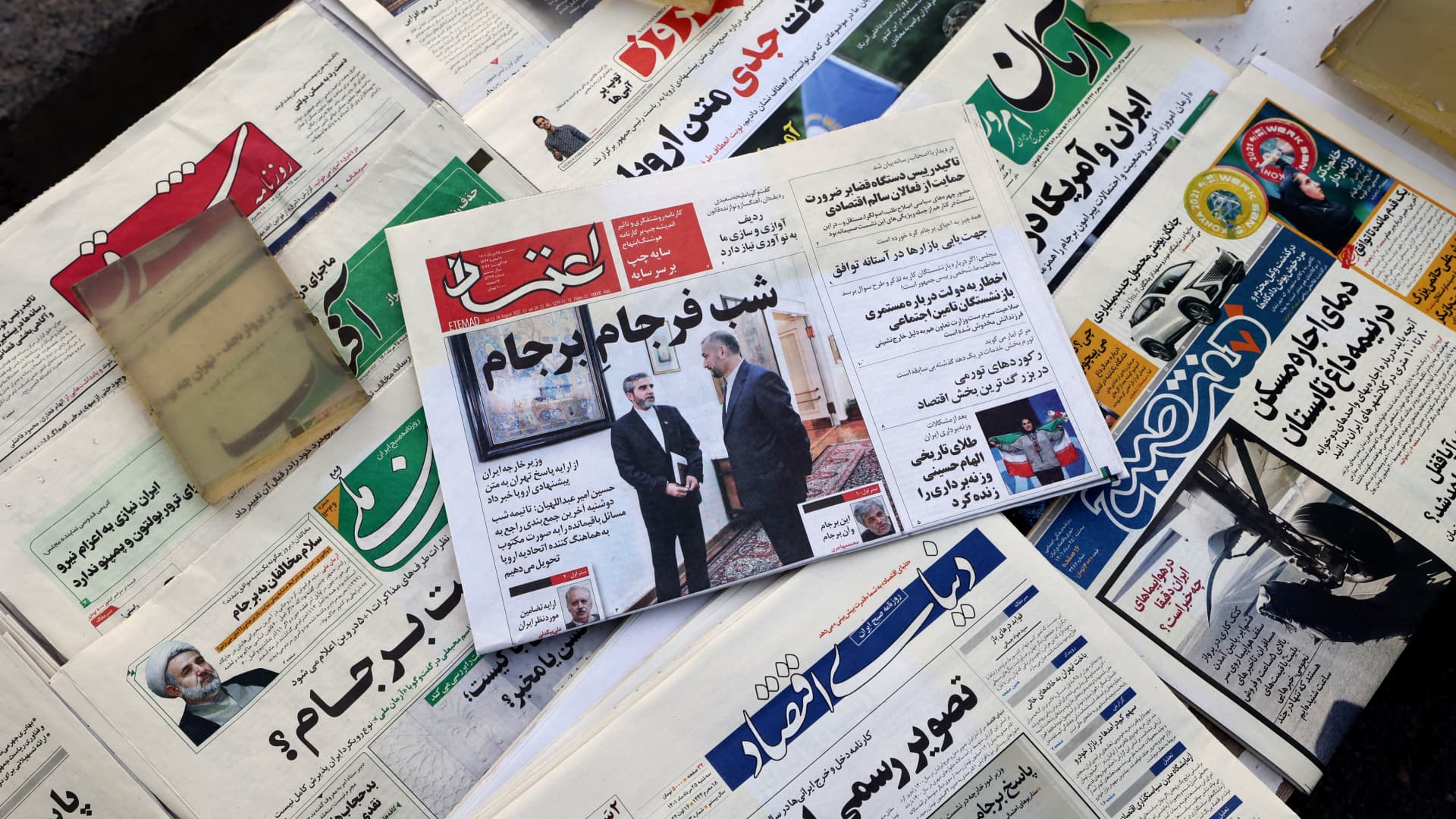
A new version of the Iran nuclear deal, also known as the Joint Comprehensive Plan of Action, would be very different from the original, said Djavad Salehi-Isfahani, an economics professor at Virginia Tech.
“JCPOA version two is very different from version one. Version one was being implemented by a moderate government that was on the whole, very much oriented towards the global economy, towards rapprochement with the West,” said Salehi-Isfahani.
Last year, signatories of the JCPOA began the first of what would become many rounds of negotiations in Vienna to revive the deal since the U.S. withdrew from it in 2018 under then President Donald Trump.
Under the original agreement in 2015, implemented during the Obama administration, Iran would dismantle much of its nuclear program and allow more international inspections in exchange for economic sanctions relief. Other world powers, such as the U.K., France, Germany, Russia and China, were also signatories.
Iran’s current president, Ebrahim Raisi, is seen as more hardline and anti-West than his predecessor Hassan Rouhani, who oversaw the signing of the 2015 deal.
The deal “aimed to normalize Iran’s relations with the West, [given that] Rouhani’s team and his political base — Iran’s modern middle class — were very western oriented and opposed to Iran getting into the Sino-Russian orbit,” added the professor.
“A new JCPOA, if it happens, is going to be in a very different environment [as] Iran is actually shifting its attention from the West towards the East. So it needs a different deal.”
Iran’s pivot to the East
In February 2018, Iran’s Supreme Leader Ayatollah Ali Khamenei, ahead of the U.S. withdrawal from the JCPOA, said a preference for “East to the West” was a priority for the country.
“After Trump left the deal, the Supreme Leader made it clear that Iran must pay more attention to the East,” said Salehi-Isfahani.
Under Raisi, Iran has sought to deepen ties with Russia and China.
In September last year, Raisi made his first official trip as Iran’s president to Tajikistan for a Shanghai Cooperation Organization (SCO) summit.
Iran has observer status in the SCO, a regional security grouping led by China and Russia.
“After Raisi’s elections, Iran has been pressing for membership in the SCO … Raisi has [also] visited Moscow twice, and Putin also visited Tehran,” the professor said.
Iranian and Russian foreign ministers also recently held consultations in Tehran, in the face of international condemnation of Russia’s invasion of Ukraine.
On taking office, Raisi also reiterated Iran’s commitment to its 25-year comprehensive cooperation program with China.
Obstacles
Though Iran appears the most optimistic it’s been in years about finally clinching an agreement on a renewed version of the 2015 nuclear deal, several important obstacles remain.
The European Union has submitted a “final text” for the deal, but Iran negotiators have highlighted issues that may prove impossible to reconcile. Iran, for example, wants a guarantee that the deal will be binding, so that no future U.S. administration can renege on a renewed agreement.
Reid I’Anson, senior commodity analyst at Kpler, is also skeptical about a revival, in light of what he says are hindrances on the domestic front. He told CNBC’s “Capital Connection” last week that a renewed deal is unlikely, given that it is politically unpopular in the United States and a “tough sell” in Iran.
